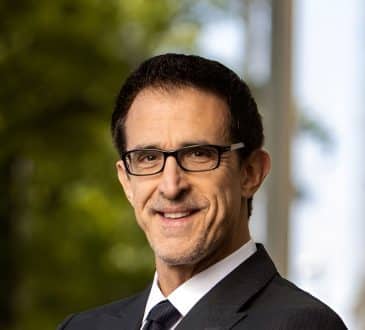Age Is Just A Number: Why Older Workers Are Essential Assets

You’ve heard the idiom “Age is just a number.” In other words don’t let the number of years you’ve lived on this planet define who you are or what you are capable of. No matter one’s age, you can continue to grow and achieve. Shrug off ageist statements such as “You’re too old to drive” based simply on your chronological age.
When it comes to the world of work, it has long been the case that the most common retirement age is 65, but many CEOs of America’s biggest companies work much longer. According to Madison Trust research, 17.8% of the five hundred CEOs running Fortune 500 companies were expected to reached the age of 65 or older by the beginning of 2024. The ages of Fortune 500 CEOs range from 39 to 93 (the indomitable Warren Buffett), and the average age is 59.2 years old which means that many are 65 plus.
Madison Trust stated, “Mandatory retirement ages have become a thing of the past with executives working into their seventies and eighties.”
And it’s not just executives. According to the US Bureau of Statistics the only age group of workers predicted to increase over the next decade are people aged 75 years and older—by a whopping 96.5%. Pew Research has found that when you factor in Americans aged 65 or older, 19% are employed—nearly double the share of those in the workforce 35 years ago.
A long-term trend toward early retirement is going into reverse. Gallup reports that 41% of American workers expect to work beyond age 65. Thirty years ago that number was 12%. Bain’s observation: “Even the spike in retirements during the peak-Covid Great Resignation now looks more like a Great Sabbatical, a blip in the long-term trend data, with a higher percentage of retirees reentering the workforce than in February 2019.”
Some older workers are returning to the workplace out of financial necessity having found that their savings and Social Security isn’t enough to cover their living costs; others, however, have a strong desire to keep working and to stay engaged. I get it. I have members of my team who love what they do and can’t imagine retiring.
So why should organizations encourage the participation of older people and what exactly do they bring to the table? Here’s a deeper look at the advantages older workers offer and the roles they can play.
- Rich experience and expertise
Older workers have accumulated years, often decades, of industry-specific knowledge and skills which allows them to handle complex situations with a level of proficiency and finesse that can only be gained through years of practical experience. I’ve found that in professions where problem-solving and quality of work are paramount, older employees tend to perform at higher levels compared to their younger counterparts.“The value of experience cannot be overstated. Older workers have weathered numerous industry changes and technological advances, making them incredibly adaptable and resilient. This resilience, combined with their diverse perspectives, contributes to a more collaborative and innovative work environment,” writes Kevin Mauro in a WorkforceGPS article titled “The Silver Workforce: Why Older Workers Are More Valuable Than Ever in 2024.”
- Strong work ethic and professionalism
Many businesses report that older employees exhibit a strong work ethic and high levels of professionalism. They tend to be punctual, reliable, and take great pride in their work. Employers generally rate older employees highly on factors such as judgment, commitment to quality, attendance, and punctuality. - Leadership and mentorship
With years of experience comes the ability to lead and mentor. Older workers often serve as mentors to younger employees, guiding them through industry norms, professional challenges, and company culture. They can also play crucial leadership roles, offering balanced perspectives that are crucial in strategic decision-making processes and can enhance team dynamics and productivity. - Stability and dedication
In an age when job-hopping is commonplace, older workers tend to stay at companies much longer, which boosts workforce stability and retains critical organizational knowledge. It also reduces turnover costs, and the resources spent on recruiting and training new employees. - Adaptability and life skills
Contrary to popular belief, many older workers have enthusiastically adapted to technological changes and continue to upgrade their skills. Their deep industry knowledge gives them the agility to predict future changes and advances, and their life experiences equip them to handle workplace stress and adapt to changing circumstances with greater ease. They’re often more emotionally stable, a quality that contributes significantly to managing teams and projects. - Improved productivity
The biggest selling point for many company owners? An improved bottom line. A major OECD review states, “A greater inclusion of older workers is likely to be good for productivity (i.e., to raise the vale added per worker of the firm.) Where young and older employees work together, young employees often benefit from the advice of their older colleagues, who can draw on their long experience…and from the transfer of firm-specific knowledge, accumulated over years.”
Wrapping it up
In conclusion, older workers are a vital asset to any organization, offering a blend of experience, stability, and maturity that enhances business operations and culture. Encouraging their participation and facilitating their integration into diverse roles not only benefits businesses but also contributes to a more inclusive and dynamic workplace. Aging workforces can help employers bridge their talent gaps and create high-quality jobs that turn older workers’ skills into sources of competitive advantage.
Written by Jason Richmond.
Have you read?
Richest Countries In Europe In 2024.
Most Attractive Countries To Private Equity, Venture Capital, and Hedge Fund Investors.
Revealed: Highest-paid news media executive in the United Kingdom.
Countries Leading the Way on Climate Change.
World’s Best Countries For Adventure Tourism.
Bring the best of the CEOWORLD magazine's global journalism to audiences in the United States and around the world. - Add CEOWORLD magazine to your Google News feed.
Follow CEOWORLD magazine headlines on: Google News, LinkedIn, Twitter, and Facebook.
Copyright 2025 The CEOWORLD magazine. All rights reserved. This material (and any extract from it) must not be copied, redistributed or placed on any website, without CEOWORLD magazine' prior written consent. For media queries, please contact: info@ceoworld.biz








